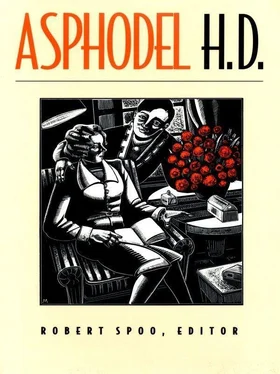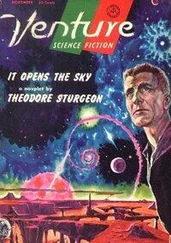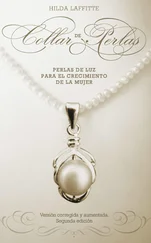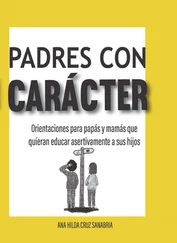“Pity you had that set-back.” It was Darrington. Hermione saw Darrington sitting in the arm-chair drawn close to the bed edge. This was really Jerrold, the brown face, the close cropped head, the stick that he held in his hand, elegant stick, he was a visitor here, elegant stick that made all nothing, dispersed all the past, the khaki upon khaki, the boom of distant thunders with a wave of a magician’s wand. Darrington was Darrington again. Darrington was Jerrold, thicker a little, heavier, but Darrington with his coat cut modishly with his shoes, with his trousers, something that took her back, in spite of herself, because of herself, something other, something different. Darrington played with the stick, his hands were firm and white fleshed at the knuckles, his hands were finer, whiter than the burnt brick of his still somewhat foreign face quite warranted. Hermione propped aloft, regarded the white knuckles, remembered sonnets, canzoni, songs, letters. . things Darrington had written. “How’s Louise?” “O Louise?” Darrington lifted heavy eye-brows and his hands stopped fingering the ebony stick, looked across at Hermione, smiled across at her and smiling, his smile with a conjuror’s magic brought back camellias, white and red, red rosettes and white rosettes that they had gathered, scraped from the clean sand of the paths to lay on the stone of Shelley, to make a circle, red rosettes, white rosettes across the stone, across the words carved in the tomb of Shelley, “ nothing in him that doth fade but doth suffer a sea-change into something rich and strange .” All the black and tumult had faded. Hermione saw the reader of the Vatican, white statues smiling and Darrington (then) standing among them, a brother. Well they were both battered. Hermione would not be able to face white sisters, clothed only in their impermeable beauty. . she thought of swollen flesh. . her own. . Darrington was no better, no worse, hardly now other than she was. They met in a smile, in the cut of his new clothes, in the affectation of his slim ebony stick. The world must recede, the black tide must recede. . there must be, there was the pendulum swing. It had swung back to pictures, to ebony sticks, to a watchet-blue (he called it) swansdown edged bed jacket she was wearing. “How’s Louise?” But Darrington had smiled away incongruous question. He said (and the words came strange from the face of this new-old Darrington) “when are you going over the top?”
Over the top. . Hermione had to stop, to draw herself in, to drag herself back. Over the top. . of what? She remembered swiftly “O after my little set-back, they said it might be later. . earlier. . they didn’t know. It might happen any day now.”
But that that was going to happen was nothing to her now. Something had happened, more strange, more miraculous than anything that could ever happen. Darrington was with her, beside her, a Darrington had crept out of the brown lean khaki, like a great moth, elegant in shape, still a little foreign in his bronze but all different. Who ever said clothes made the man — did or didn’t make the man? For clothes made Darrington smile with an old pre-chasm smile. The smile Darrington smiled had nothing to do with rows and rows of livid dead, with barbed wire, with the flare of red or green blazing above broken trenches, with the drone of planes, with the sudden flare and drop of bombs, with “over the top” (though incongruously he had just said it) with “Mademoiselle in the family way” (though she was patently) with “scrounging” (though she had. Beryl had brought the exquisite bed-jacket, everything) with “going west” (though she had, patently, had come back again, had been dead, was now alive) with “that’s the stuff to give ’em.” Darrington smiled a smile that erased all that, the smudged out image of the war, of terrible things that had happened, of Louise and Florient and Merry. “O Merry. Where is she? I have quite forgotten.” Darrington went on smiling. He reached toward her and his hand found hers and his kisses found hers. . “Forgotten. . never see. .” He had forgotten something, they had all forgotten something. Darrington and Hermione were wedded in this new understanding. He had forgotten. She had forgotten. He was going to take care of her and he had come back and he was so happy and everything was going to be all right. Forgotten. Merry was forgotten. Louise was forgotten. O far and far and far, pre-chasm things came back, the smell of the ice-cold corridors of the Louvre on a summer day and the hot sound that was “deux sous la botte,” the little boy who pursued them down the rue du Four and the carnations, the pink spice-sweet little garden oeillets that Jerrold would buy from him. “Do you remember those pinks you used to get me? Sops in wine you used to call them. Wine pink. Pink. French.” Darrington remembered and thinking of wine pinks, fragrance was about her. England was gone. Faces, people, people, faces. “Little Vérène, poor little Vérène. .” “Vérène?” “Didn’t you know? You’ve forgotten. . so had I till only the other day when Delia came to see me.” “O delicious Delia. . is she still?” “No. Tired but smiling through it. Lost. Gone. She’s still alive.” “That’s something.” “But Vérène. . most hideous of calamities. . Walter. .” “O forgeron. Poor beast. .” “Beast, yes. Like a great white sacrificial ox. Great white creature, spending his time playing for wounded poilus, odd things, red cross (or the French equivalent) concerts. He was born you know (an American) in Munich.” “All rather complicated. .” “Yes. Vérène’s mad.”
It seemed so long ago. That they should still be holding on to life with such tenuous threads and Hermione pulled threads to get something of that pre-chasm into her speech and all the pre-chasm was as she recalled it, worse even than their own particular and unique Purgatory. Other things. Other people. Things that had existed in one dimension, that couldn’t any more so exist. You couldn’t any more move on a straight line, you advanced in a spiral and as you grew nearer to the higher things (nearer to the higher? What muddlings) you grew more vague, no, more distinct, but a distinctness in vagueness that was most tantalizing. Get across the chasm, for those things had existed. Get across the chasm for this thing that holds you in its arms is pre-chasm, a little heavier but kisses that she had lost, that had been blinded, blotted out in a dark cloud. Get across the chasm to the other side for there are dreams still the other side, ivory, bronze. Dreams dwell in ivory and bronze, the Narcissus of the Naples gallery. “Do you remember the blue-fire phosphorescence of the huge blue deep sea sort of jelly fish that so fascinated me in the aquarium?” “Aquarium?” “Naples. I seem to be in two sets of perceptions. . blue green of phosphorescent fire and static bronzes. That Narcissus, you remember. Two sets of clearly defined perceptions. We’ll never any more be able to see anything straight on — clear—” “But we do, darling.” Almost thou persuadest me to be a heathen . She did see things straight for a little moment, but she knew it would soon slip from her. She couldn’t go on seeing things in different dimensions all the time, “steadily and” (was it?) “whole.”
“Vérène’s I told you, mad. You don’t seem interested.” “I am. Only aren’t we, all? What’s odd, incongruous—” “O, I don’t mean like that — like we say it, she’s mad, you know. I mean insane, insane, locked up.” “Where — how — why — I don’t understand.” They were drawing things out of the depth, pre-chasm to observe them. Things she had for years forgotten now came back— “How did it happen?” “I don’t know. Delia told me and it seemed like the end of a story. A story I had read, put aside, forgotten and then years and years afterwards (five years?) found again, finished, done for. It made me feel something was finished — the old régime I suppose — all the old beautiful intensity, the France we loved — Vérène so smug. She’s not now. O poor little ignorant smug little tight closed, wide open French rose. So smug, so secure and always so sure that everything would come right once one was married — do you remember?” “It links on somehow to that queer girl—” “Shirley yes. Also pre-chasm — a clean bullet, finished.” “And the other queer creature?” His breath was on her face. His ebony stick had slid to the floor. “Be careful — I get — tired—” His breath was on her face and it appeared in one sudden moment of illumination that this was not right. Vérène went mad since she couldn’t (it was evident) march with events. Shirley shot herself since she couldn’t march forward. Wasn’t that it? The wave had lifted them to the crest. One must roll in, on with the tide, with the times, or be crushed under the wave, ground to death in the trough and the great drag back that would be the inevitable aftermath of the war and all it stood for. All those lovely years. Vérène, delicious Delia, all the funny people, someone with a monocle at Delia’s, someone saying someone was like Nero, some girl who spilled hair-pins, hydrangeas and the smoke blue of odd conservatory colours, George with his almost thou persuadest me to be a heathen and the upward drift of candles in Vérène’s elegant Clichy apartment. Walter and the great drone of the sea. But Walter was out of it, always above it, he hadn’t been caught, not actually, he was the inapproachable glacier and he would go on being that. But caught in the flow, Vérène without volition to sweep onward, caught and frozen (Hermione had always known it would come) by Walter’s distant, beautiful aloofness. Vérène and Shirley, victims — victims — wasn’t she the greater victim? She and Darrington? No, no, no, no, no. She felt sensing the wave push back of her that she would land, finally, safely, be thrown, advancing, going on, be thrown by the very impetus of the wave strength up, up on dry land, onto a new post-chasm world. Strike against the wave, the advance of the wave and you are doomed. . Morganlefay.
Читать дальше












